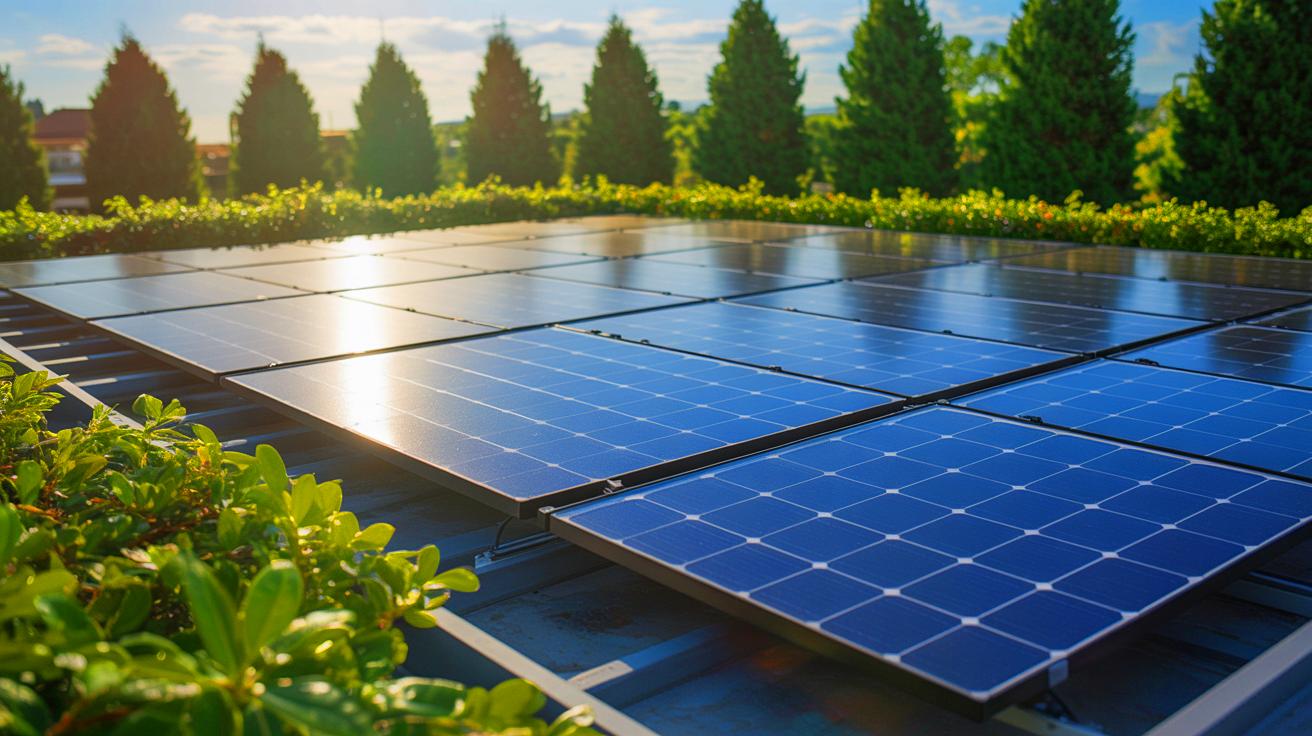- 🌞 A study by SOLARCYCLE and Arizona State University shows that solar panels made with recycled glass match the efficiency of new glass panels.
- 🔄 This research supports SOLARCYCLE’s mission to create a closed-loop system for solar panel manufacturing, enhancing sustainability.
- 📈 The rising trend of solar recycling includes new facilities and technologies aimed at reducing waste and reusing resources.
- 🌍 The findings could transform the renewable energy sector by promoting a sustainable supply chain for solar panels.
The renewable energy sector is witnessing a groundbreaking shift. A recent study by SOLARCYCLE and Arizona State University (ASU) reveals that solar panels produced using recycled glass match the efficiency of those made with new glass. This significant development could pioneer a sustainable and self-reliant supply chain for the industry. The research presents an exciting prospect for reducing waste and enhancing the sustainability of solar panel production. By utilizing a 50/50 mix of recycled and new glass, the study underscores the potential of recycled materials to maintain performance standards, offering a promising future for renewable energy solutions.
Revolutionizing Solar Panel Efficiency
In a pivotal study conducted at Arizona State University’s Ira A. Fulton Schools of Engineering, researchers tested solar panel prototypes made from equal parts recycled and new glass. The results were striking. The power-conversion efficiency of these panels was comparable to that of panels made entirely from new materials, with no statistically significant differences observed. This achievement highlights the potential of integrating recycled materials into solar panel manufacturing.
Dr. Zachary Holman, ASU’s vice dean for research and innovation, emphasized the importance of this finding. “Together, we proved that you don’t have to sacrifice performance to build solar panels more sustainably,” he stated. The study, led by ASU researcher Kate Fisher, utilized recycled glass cullet sourced from end-of-life solar panels processed using SOLARCYCLE’s proprietary technology. Such advancements underscore a promising path forward for sustainable solar technology.
Validating a Closed-Loop System
The study’s success is a significant validation for SOLARCYCLE’s mission to establish a closed-loop system in solar panel manufacturing. By demonstrating that recycled materials can maintain peak performance levels, SOLARCYCLE aims to revolutionize the industry’s approach to sustainability. Pablo Dias, the company’s Chief Technology Officer, articulated the broader implications of this research.
“By proving we can manufacture new solar panels using recycled materials that produce at peak performance levels, we’re taking a major step toward making the solar industry more sustainable, scalable, and self-reliant,” Dias stated. This vision is further supported by SOLARCYCLE’s plans to construct a solar glass factory in Cedartown, Georgia. The facility will be the first to use recycled glass cullet as a primary input, applying the process validated by the ASU study.
The Rising Trend of Solar Recycling
Recycling in the solar industry is gaining momentum. SOLARCYCLE’s upcoming recycling plant in Cedartown, Georgia, will initially recycle up to 2 million panels annually. As the demand for sustainable solutions grows, the facility’s capacity is expected to increase. Beyond SOLARCYCLE, other companies are entering the recycling space with innovative technologies.
California-based PV Circonomy has developed an automated technology for solar panel recycling, boasting a 99.3% material recovery rate. This advancement reduces waste and allows for the reuse of valuable resources. Similarly, researchers in Sweden have created a method that recycles all parts of solar cells without hazardous solvents, achieving the same output as original cells. These efforts illustrate a broader industry trend towards sustainable practices in solar technology.
Future Implications for Renewable Energy
The study conducted by SOLARCYCLE and ASU could have far-reaching implications for the renewable energy sector. As the world grapples with climate change and the need for sustainable solutions, the ability to produce high-efficiency solar panels from recycled materials offers a compelling opportunity. This approach not only reduces waste but also strengthens the domestic supply chain.
With the continued development of solar recycling technologies and practices, the industry may soon witness a significant transformation. The integration of recycled materials into manufacturing processes could reduce dependence on virgin resources, lower costs, and enhance environmental sustainability. As the industry moves forward, how will these innovations shape the future of renewable energy, and what new challenges and opportunities will arise?
This article is based on verified sources and supported by editorial technologies.
Did you like it? 4.6/5 (27)
